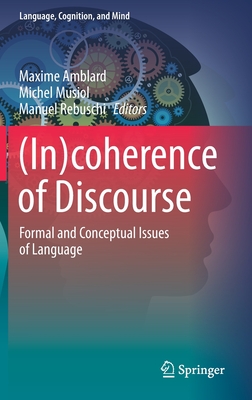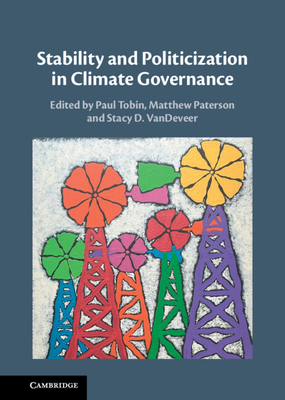商品描述
This book explores the application of formal methods, rooted in mathematics and logic, to the analysis and enhancement of biomedical ontologies. The authors take a pragmatic approach focused on generating actionable insights to achieve high-quality codified biomedical knowledge in the most active and impactful areas where ontologies have a direct real-world impact. The book first introduces simple, yet formalized strategies for discovering undesired and incoherent patterns in ontologies before exploring the application of formal concept analysis for semantic completeness. The authors then discuss formal concept analysis as an ontological engineering principle. The book goes on to highlight the power and utility of uncovering non-lattice structure for debugging ontologies. This Second Edition includes a new chapter that covers recent research on leveraging logical definitions for identifying ontological defects. The authors have also added a new chapter on the perspective of using large language models in the ontological analysis work.
商品描述(中文翻譯)
本書探討了基於數學和邏輯的形式方法在生物醫學本體分析和增強中的應用。作者採取務實的方法,專注於生成可行的見解,以實現高品質的編碼生物醫學知識,特別是在本體對現實世界有直接影響的最活躍和最具影響力的領域。本書首先介紹了簡單但形式化的策略,用於發現本體中的不良和不一致模式,然後探討形式概念分析在語義完整性方面的應用。接著,作者討論了形式概念分析作為本體工程原則的角色。本書還強調了揭示非格結構在調試本體中的力量和實用性。本書的第二版新增了一章,涵蓋了利用邏輯定義識別本體缺陷的最新研究。作者還新增了一章,探討在本體分析工作中使用大型語言模型的視角。
作者簡介
Guo-Qiang "GQ" Zhang is distinguished chair in digital innovation, vice president, and chief data scientist at the University of Texas Health Science Center at Houston (UTHealth Houston). He serves as co-director for the Texas Institute for Restorative Neurotechnologies and holds primary appointment as full professor in the Department of Neurology at UTHealth Houston's McGovern Medical School. He has secondary joint appointments in the McWilliams School of Biomedical Informatics and School of Public Health, UTHealth Houston. Before joining UTHealth, he served as the inaugural director for the Institute for Biomedical Informatics, chief of the Division of Biomedical Informatics, and associate director for the Center for Clinical and Translational Science (CTSA) at the University of Kentucky. He spent prior years as a faculty member at the Case School of Engineering and School of Medicine, at Case Western Reserve University, where he created its Division of Biomedical Informatics in the School of Medicine while serving as its CTSA informatics core director. Dr. Zhang received his Ph.D. in Computer Science from Cambridge University. His research work and interests span data ecosystems and big data, biomedical ontology development and quality assurance, clinical and research informatics, and data coordination systems for prospective metadata management in national consortia, such as the latest, on-going BRAIN Initiative Cell Atlas Network (BICAN). He has launched a research program called ``logic-based phenotyping, '' a formalized mathematical approach for temporal phenotype representation and reasoning using an expressive and purpose-fitting framework called "temporal ensemble logic". His work has been funded by research awards from the National Institutes of Health (NIH) and the National Science Foundation (NSF). Rashmie Abeysinghe received his B.S. degree in Computer Science from University of Peradeniya, Peradeniya, Sri Lanka in 2014 and Ph.D. degree in Computer Science from University of Kentucky, Lexington, KY, USA in 2020. He completed a Summer Internship at the National Library of Medicine, NIH in 2019. In 2020, he joined the Department of Neurology, McGovern Medical School at the UTHealth Houston, first as a Research Scientist and then as Assistant Professor. His research interests revolves around biomedical ontologies from a quality assurance perspective, information extraction, and deep learning. His paper won a Distinguished Paper Award at the 2021 AMIA Annual Symposium. His papers were also selected as finalists for both the 2018 and 2019 AMIA Annual Symposium Best Student Paper Competitions. Licong Cui received her Ph.D. in Computer Science from Case Western Reserve University (2014). She is associate professor in McWilliams School of Biomedical Informatics at UTHealth Houston. Before joining UTHealth Houston, she was an assistant professor in the Department of Computer Science and a member of the Institute for Biomedical Informatics at the University of Kentucky. Her research interests include ontologies and terminologies, neuroinformatics, big data analytics, large-scale data integration and management, and information extraction and retrieval. She has been a Principal Investigator of a number of highly competitive research awards funded by the NIH and the NSF. She is a recipient of the prestigious NSF CAREER Award.
作者簡介(中文翻譯)
郭強「GQ」張是德克薩斯大學休斯頓健康科學中心(UTHealth Houston)數位創新特聘教授、副校長及首席數據科學家。他擔任德克薩斯修復神經技術研究所的共同主任,並在UTHealth Houston的麥戈文醫學院神經學系擔任正教授。他在麥克威廉斯生物醫學資訊學院和公共衛生學院擁有次要聯合任命。在加入UTHealth之前,他曾擔任肯塔基大學生物醫學資訊研究所的首任所長、生物醫學資訊部門主任及臨床與轉化科學中心(CTSA)的副所長。他在凱斯西儲大學的工程學院和醫學院擔任教職,並在醫學院創建了生物醫學資訊部門,同時擔任其CTSA資訊核心主任。張博士於劍橋大學獲得計算機科學博士學位。他的研究工作和興趣涵蓋數據生態系統和大數據、生物醫學本體開發和質量保證、臨床和研究資訊學,以及用於國家聯盟的前瞻性元數據管理的數據協調系統,例如最新的持續進行的BRAIN Initiative Cell Atlas Network(BICAN)。他啟動了一個名為「基於邏輯的表型」的研究計劃,這是一種正式的數學方法,用於使用一種表達性和適合目的的框架「時間集成邏輯」進行時間表型表示和推理。他的工作得到了國家衛生研究院(NIH)和國家科學基金會(NSF)的研究獎助金支持。
拉什米·阿貝辛赫於2014年在斯里蘭卡佩拉德尼亞大學獲得計算機科學學士學位,並於2020年在美國肯塔基大學獲得計算機科學博士學位。他於2019年在國立醫學圖書館(NIH)完成了暑期實習。2020年,他加入UTHealth Houston的麥戈文醫學院神經學系,最初擔任研究科學家,後來成為助理教授。他的研究興趣圍繞生物醫學本體的質量保證視角、信息提取和深度學習。他的論文在2021年AMIA年會上獲得了傑出論文獎。他的論文也被選為2018年和2019年AMIA年會最佳學生論文競賽的決賽入圍者。
崔麗聰於2014年在凱斯西儲大學獲得計算機科學博士學位。她是UTHealth Houston麥克威廉斯生物醫學資訊學院的副教授。在加入UTHealth Houston之前,她曾擔任肯塔基大學計算機科學系的助理教授及生物醫學資訊研究所的成員。她的研究興趣包括本體和術語、神經資訊學、大數據分析、大規模數據整合和管理,以及信息提取和檢索。她是多個由NIH和NSF資助的高競爭性研究獎的首席研究員。她是享有盛譽的NSF CAREER獎的獲得者。


















